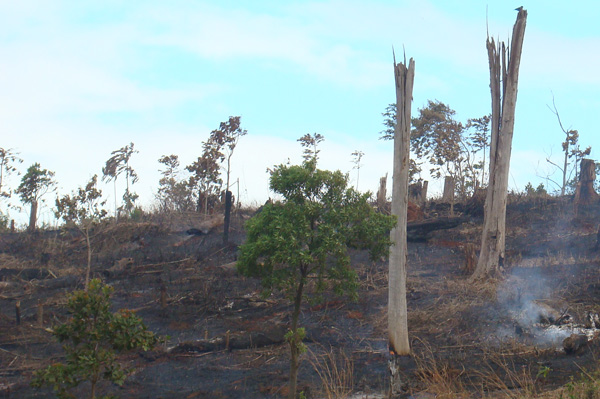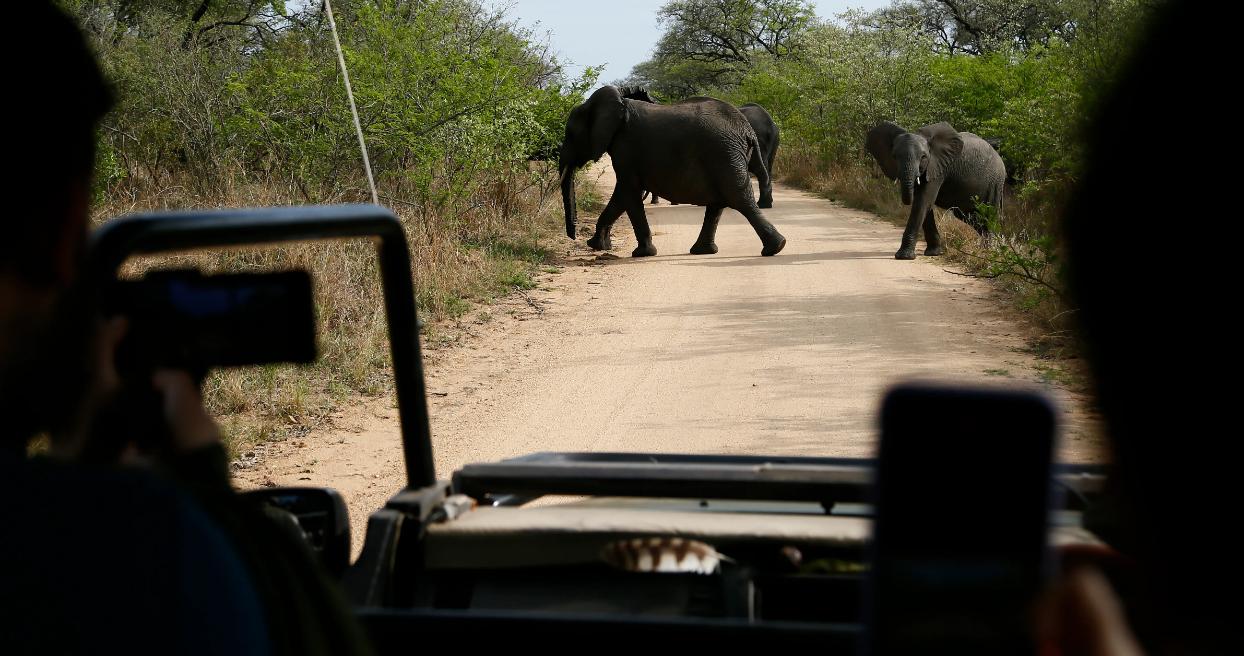Beijing, once among the most polluted cities globally, has significantly improved its air quality over the past two decades, with its experience possibly providing Hanoi with valuable insights into the severe air pollution that the Vietnamese capital is enduring.

The Forest Asia Summit 2014: Small Rooms, So Much Heat!
Just for 2 days, 5-6th May 2014, the Forests Asia Summit held in Jakarta, Indonesia has waved many pressing issues in the sustainable development goals of the region.
It seems annually such kind of event will be held for the Southeast Asia to meet the challenges of losing 13% of its forests in the last 20 years – equivalent to around 332,000 square kilometers of forest land, an area roughly the size of Vietnam. The forum was preceded by several key events, including the Global Landscapes Forum in 2013, and the Forests Indonesia Conference in 2011.
The biggest annual event for forests
The two-day conference was co-operatively organized by the Center for International Forestry Research (CIFOR) and the Global Initiatives; and co-hosted by the Indonesian Ministry of Forestry. It was evidenced of 25 exhibitors, 10 landscapes issues marketplace, and made by 29 partners; which includes 19 session organizers; and 20 partners relative to funding, supporting and media institutions.
Excepting for watched by 4000 more globally online, around 2000 high-level representatives of government and the private sector attended the event, including environment ministers from Brunei, Myanmar, Peru and Singapore, senior officials, and leaders from the agriculture, banking, oil palm and timber-related industries.
With 167 speakers, summit discussions began with a high-level panel on ‘Green Growth in Southeast Asia,’ followed by the 4 other high-level sessions and 19 parallel discussion forums on 5 themes of the conference.
Several special events took place, including: one week journalist training workshop running just before the event started; lunchtime learning sessions on fire and haze, and forestry research; a breakfast roundtable discussion on sustainable agriculture and rural livelihoods; and an evening presentation on a Global Plan of Action for the conservation, sustainable use, and development of forest genetic resources in Asia.
The event sets a special session on Monday evening for Youth representatives. Whereas, the Landscapes Issues Marketplace offered a place for participants to view and discuss sustainable landscapes solutions.
Meaningful to not just forests
The event undertaken in a context of 18 months to come informing global policy processes regarding climate change, sustainable development and green economy; as the summary – “our world is at a turning point”, said at the event’s opening speech by Dr. Peter Holmgren, Director General of CIFOR.
In terms of benefited region – forests in Asian countries, the forum is fruitful as this is very dynamic region with rapidly growing economy, environmental challenge such as inequality, uncertain land tenure, un-sustainable land use, a loss of biodiversity, food insecurity and climate change.
Within enormous issues that not often titled to forests such as green growth, sustainable land use, climate change adaptation and mitigation, food security, nutrition and poverty eradication, the issues of “forests and landscapes” is centered at the core of ongoing policy processes.
Apparently, the 5 serious themes were deeply addressed, including: governance and legal frameworks to promote sustainable landscapes; investing in landscapes to promote green returns; climate change and low-emissions development on the ground; forest landscapes for food and biodiversity; and changing communities, sustainable landscapes, and equitable development.
So much heat released!
Although the two-day event trapped in “a tinny space” – 8 rooms and 2 public areas, but so much heat released! It was differently with a view that forest management is a cross-cutting issue, and not only about keeping the trees.

To open the event, the outgoing President of Indonesia, Susilo Bambang Yudhoyono delivered: forest management “is about striking a balance between the need for conserving the environment, and guaranteeing the rights of local communities over their customary forests”.
Following up with the view of Mr. President Susilo Bambang Yudhoyono, Mr. Vivian Balakrishnan, the Singaporean Minister for the Environment and Water Resources urge countries to work together to solve the issues. “We need to have a dialogue between forestry and agriculture, between public and private, and between urban and rural”, said him about his initiative to the event.
It was also amazing with the question of that how much the forest in global discussion regarding to the UN (United Nations) and other regional forum. “What is situation of climate debate now-involving all stakeholders? Rights of local people on land etc” – questioned by Peru’s Environment Minister, Manuel Pulgar-Vidal, who will preside over the UN climate change talks in Lima – Peru in this December.
In the parallel discussion namely “Investing in landscapes for green returns”, it was supporting to shared experiences from Vietnam, Dr. Nguyen Ba Ngai, Deputy Director of Viet Nam Administration of Forestry on “commitments” between forest environment service users and people those who own the forests.
“… to succeed the PFES (Payment for Forest Environmental Services) scheme in Vietnam, our experience is enhancing the commitments within it” – discussion of Dr. Nguyen Ba Ngai in the afternoon of the day-two summit.
The view on an “un-convenient truth” was seriously silencing over more 2000 participants of the first-day event. “We have a problem! We have a problem” repeatedly remarked by – Mr. Vivian Balakrishnan, the Singaporean Minister for the Environment and Water Resources in his speech at the event.
In order to explain the “statement”, Mr. Vivian Balakrishnan continuously said: “The root of this problem is misaligned commercial interests. The reason companies burn forests and engage in unsustainable degradation of land is because of short-term profits.”
Before starting off his speech, Mr. Vivian Balakrishnan centralized roles of private sector in responsibilities to solve the problem. “…companies have responsibilities… have got to make your profits in a way which accounts for the impact that you have on the local communities and on the environment” – said by Mr. Vivian Balakrishnan.
The introduction to the event on a new acronym, T20Qs (Top 20 questions for forestry researches), at the Day 2 Welcome Speech given by Peter Holmgren rose encouragements for research communities in the future regarding to sustainable uses of the region forests.
By Tran Van Viet
Mr. Tran Van Viet is a technical officer of the Agricultural and Rural Division under the Economic Commission of the Party’s Central Committee (PCC). The author’s writing reflects his own opinions and does not necessarily reflect the opinion of PanNature or the organization he’s working with.



